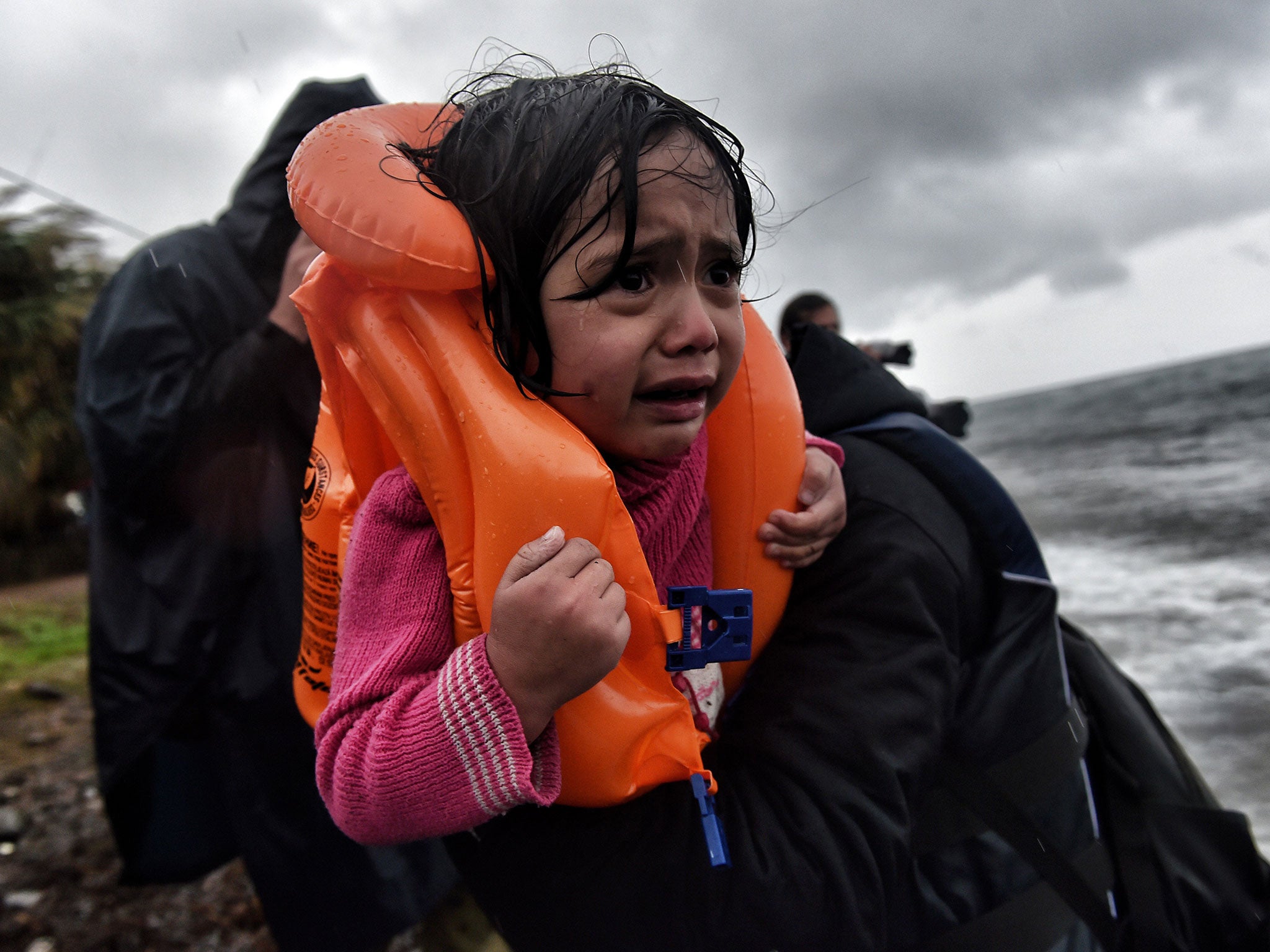UK should resettle 3,000 child refugees 'as matter of urgency', say MPs
Influential House of Commons committee estimates 26,000 unaccompanied refugee children entered Europe last year

Your support helps us to tell the story
From reproductive rights to climate change to Big Tech, The Independent is on the ground when the story is developing. Whether it's investigating the financials of Elon Musk's pro-Trump PAC or producing our latest documentary, 'The A Word', which shines a light on the American women fighting for reproductive rights, we know how important it is to parse out the facts from the messaging.
At such a critical moment in US history, we need reporters on the ground. Your donation allows us to keep sending journalists to speak to both sides of the story.
The Independent is trusted by Americans across the entire political spectrum. And unlike many other quality news outlets, we choose not to lock Americans out of our reporting and analysis with paywalls. We believe quality journalism should be available to everyone, paid for by those who can afford it.
Your support makes all the difference.The UK should act immediately to resettle 3,000 children left to fend for themselves on Europe’s refugee routes, an influential House of Commons committee has said.
MPs on the International Development Committee (IDC) said that the Government should treat the plight of child refugees “as a matter of urgency”.
It is estimated that around 26,000 unaccompanied refugee children entered Europe last year. The Save the Children charity has repeatedly warned that lone child refugees are left vulnerable to exploitation and have recorded numerous cases of extortion, sexual abuse and violence against young refugees.
In a detailed report on the Government’s response to the Syrian refugee crisis, the IDC said it would welcome UK action to resettling 3,000 vulnerable children in Europe – the number estimated by Save the Children to be the UK’s fair share - on top of the 20,000 Syrian refugees ministers have already pledged to take in from Syria and neighbouring countries over the next four years.
Charities including Oxfam, the Refugee Council and Amnesty International have criticised the Government this week for what they called its “clearly inadequate” resettlement plans.
However, the IDC’s report commended ministers for providing £1.1bn in humanitarian aid to victims of the Syrian war in the region itself. MPs said it was more cost-effective and in the best interests of refugees to provide support in the region.
Their report, based on evidence from a range of organisations and individual experts, also warned that cuts to humanitarian aid was one the main factors pushing refugees to take the dangerous voyage across the Mediterranean into Europe, and urged the UK to put pressure on other countries to match its aid commitments.
“Of more than 900,000 people taking the dangerous route across the Mediterranean, one in every two were Syrian. The first refugee casualty of 2016 was a drowned two year old boy pulled from the sea off the Greek coast,” said Labour’s Stephen Twigg, who chairs the IDC.
“Having survived the treacherous journey, there is a grave possibility that unaccompanied children become the victims of people traffickers who force them into prostitution, child labour and the drugs trade. This is an issue of utmost urgency.”
The report also calls on the Government to ensure Syrian refugees settled in the UK are able to start working, and criticised a recent cut to Government grants for English-language teaching classes. MPs said a decision last summer to withdraw £26m in state funding for English for speakers of other languages (ESOL) courses at colleges throughout the UK, would be “counterproductive” to the integration of refugees.
Justin Forsyth, Save the Children’s CEO said: “Britain has a proud history of helping child refugees and we can play our part now in protecting those affected by the worst humanitarian crisis since World War Two.”
David Cameron told MPs last month that the Government was looking again at the issue of bringing Syrian children to the UK, both from the region and from within the EU.
A Government spokesperson said: “As this report rightly makes clear, the UK has been at the forefront of the humanitarian response to the Syria crisis and we will continue to push others to honour their commitments.”
Join our commenting forum
Join thought-provoking conversations, follow other Independent readers and see their replies
Comments